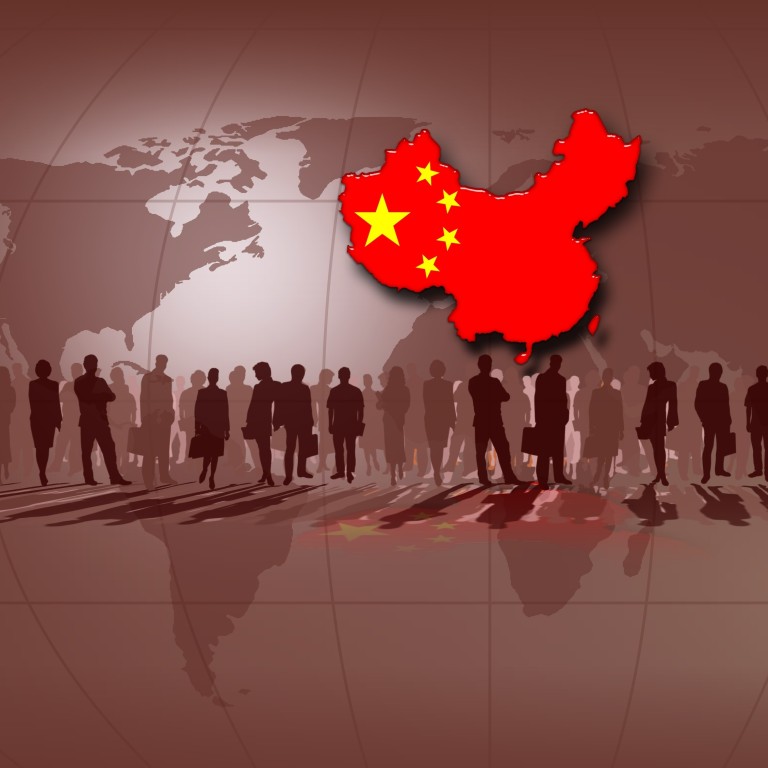
Resolving China’s ‘phantom conflict’ with the West demands a strong sense of perspective
- Beijing’s economic and geopolitical rise is causing a major shift in the global order, but anyone hoping for a one size fits all solution to the tit-for-tat disputes and repeated misunderstandings needs to think again, writes Kerry Brown
Commentators are talking of a new cold war, though in some ways that era of tensions between the Soviet Union and the US was far more straightforward. There were tangible boundaries between the two, and clear lines of attack and influence. With China, it is more like the mixture of a complex and interconnected set of issues that are far harder to analyse and disaggregate.
“Phantom conflict” is a more appropriate way to describe the situation, as no one knows quite what the terms of the struggle are, where the field of combat is, or for that matter, whether the battle – if there actually is one – has already started.

Complaints about Chinese influence are only intensified by this quality of being almost spectral and amorphous. In some mysterious way, Chinese state interference is being conducted, it is claimed, through Confucius Institutes, through cyberspace, through Chinese students working on campuses outside the country, and through a host of other measures. There is nothing explicit or easy to define about this action. Its power is in its mysteriousness.
Is the US overreacting to the China threat? Yes, but Beijing’s iron grip isn’t helping, says leading Harvard professor
The one certainty is that trust between Chinese and non-Chinese entities has never looked more vulnerable. Whoever is at fault in this, and it is likely to be a situation created by both sides, things have come to a sorry state.
The world’s second-largest economy should be enjoying its moment of return, basking in the sun of success, being appreciated for the contribution it is making to the global order and development, not regarded with suspicion, increasingly isolated, and serving as the source of resentment and blame for an ever enlarging army of critics in Washington and elsewhere.
A sense or perspective is one thing we should all aspire to in 2019. That such a huge country wants to influence how events transpire should be no mystery. If it can do this, then why not try to? It would be odd if it did not.
And the fiercer of Beijing’s critics, who condemn what they claim are its attempts to export a mysterious plan – the “China Model” – with its authoritarian bias and other negative attributes, might want to pause and remember the huge effort that players like the US and Europe put into influencing and changing China from the late 1970s onwards.
From encouraging more market friendly economic reform in China, to supporting village democracy, to crafting a host of other means by which to impress and thereby reform Chinese thinking about the West’s democratic models, there was a concerted effort, till quite recently, and an entirely understandable and worthy one, to try to mould China in a way that made it more similar to the developed world.
University of Michigan says it will cut ties with China’s Confucius Institute
Whatever the assessment we give of this vast effort to persuade and induce, there is one incontrovertible conclusion we can draw today – it did not go the way anyone expected. China has become a hybrid, largely politically unchanged, and very complex actor.
Now that their country is so much more prominent and stronger, any Chinese attempting to play the same game with the rest of the world might pause to consider this story, and learn from it. Their attempts to change opinion and mould ideas are almost certainly going to lead to the same unexpected outcomes. We are already seeing signs of that. The law of persuasion seems to be that it perpetually leads to the least expected outcome.
And the rest of the world needs to remind itself that this attempt by China to have an impact on the global environment is by no means a new story. In a comprehensive new study, to be issued later this year, British scholar Julia Lovell plots the ways in which from the 1950s onwards there was a concerted attempt to export Global Maoism. This led to support for insurgency movements in India, Peru and to small cells of zealous supporters of the Maoist cause in Europe and the United States.
How China is leveraging Confucianism to boost cultural tourism
Maoist supporters in the late 1960s in Germany ended up gravitating to the Green Party. Huge efforts from the Cultural Revolution onwards went into planting the seeds of sympathy for Maoism even at a time when China was far weaker and more isolated than it is today. On Lovell’s calculation, despite immense poverty at home, the central government in Beijing committed huge sums to supporting sympathetic foreign forces – perhaps up to 7 per cent of its gross domestic product in the early 1970s.
So for all the seeming novelty of a China in the business of influencing and trying to manipulate the rest of the world, we would do well to placate our more nervous dispositions by reflecting on exactly how this early phase ended up.
Global Maoism, despite a brief initial impact, was soon marginalised and then largely discarded. In the end, the ideas that thrived were the more capitalist ones borrowed from the West that the Dengist leadership embraced, sinicised and then used to forge revolutionary change through the 1980s and beyond.
The very best we can all learn from this modern history of mutual attempts to influence each other is that the most powerful results come from synthesising and matching the different value sets and ideas of China and non Chinese traditions, rather than setting them on a course for a head-on collision.
Attempts at overt transformation or zero-sum change have never gone well for anyone. There is no reason to think it will be any different today, with the added issue that at least the first time round it was novel.
Kerry Brown is director of the Lau China Institute, King’s College, London

